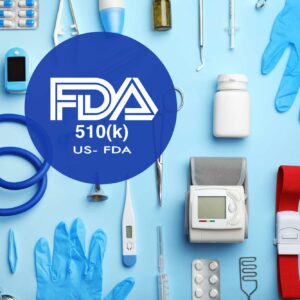The FDA announced this week that honey will undergo testing for economically motivated adulteration (EMA) via import sampling and a risk-based import entry screening program. Honey, the golden nectar cherished for its natural sweetness and numerous health benefits, has been on FDA’s radar over the last few years with Agency sampling assignments carried out in 2022 and 2023, the results of which were finally released this week. Due to growing concerns of economic adulteration, a practice that undermines the integrity of honey, the Agency is ramping up its oversight on honey production and distribution. The FDA’s actions of sweet revenge also come as a response to safeguard both consumer trust and the honey industry’s reputation, given consumers’ increased desire for transparency and authenticity in their food choices and the susceptibility of honey to EMA.
A Look at Economic Adulteration, also known as Food Fraud
Economic adulteration refers to the fraudulent practice of diluting or substituting high-quality ingredients with cheaper alternatives for financial gain. In the case of honey, this can involve mixing it with less expensive sweeteners derived from various plant sources including cane, corn, rice and sugar beets. While such adulteration may seem harmless on the surface, it poses significant risks to consumers, the environment, and the beekeeping industry.
One of the primary concerns with adulterated honey is its impact on consumer health. Pure honey boasts a range of health benefits, including antioxidant properties and potential antimicrobial effects. However, adulterated honey may lack these beneficial qualities or even contain harmful additives. For individuals with allergies or sensitivities, consuming adulterated honey can lead to adverse reactions and undermine the perceived health benefits of this natural sweetener.
Moreover, economic adulteration threatens the livelihoods of beekeepers and honey producers who adhere to stringent quality standards. By flooding the market with inferior or counterfeit products, dishonest actors can undercut prices, driving honest producers out of business. This not only erodes consumer trust but also disrupts the delicate balance of the honey industry, which relies on sustainable practices and ethical beekeeping.
Honey, I Shrunk the Fraud: FDA’s Response
Recognizing the gravity of the situation, the FDA has stepped up its efforts to combat economic adulteration in the honey supply chain. The Agency has implemented various measures to enhance detection and enforcement, including increased testing and surveillance of honey products entering the market. By leveraging advanced analytical techniques, such as nuclear magnetic resonance (NMR) spectroscopy and Stable Carbon Isotope Ratio Analysis (SCIRA) (e.g. to analyze the organic composition of honey), the FDA is looking to more accurately identify adulterated honey and hold responsible parties accountable.
FDA also continues to add companies with associated violations to Import Alert 99-47, “Detention Without Physical Examination of Human Food Products That Appear to be Adulterated for Economic Gain.” Products listed on this Import Alert are subject to Detention without Physical Examination (DWPE), or automatic detention, as they are presumed to be violative. For companies seeking to enter products subject to the Import Alert, we recommend providing evidence to the FDA to overcome the appearance of a violation, such as test results of a third-party laboratory, verifying that the product does not contain added sweeteners.
Additionally, companies that import honey or that use honey as an ingredient in their food manufacturing, can ensure compliance and consumer protection by ensuring the authenticity of honey. When other sweeteners are added to honey, the Federal Food, Drug & Cosmetic Act (“FDCA”) requires that the finished product be labeled as a “blend” and not merely “honey” and be appropriately declared in the ingredient statement. We remind businesses to ensure that packaged food labeling is truthful and not misleading.
Furthermore, the FDA continues to work closely with industry stakeholders, including beekeepers, processors, and distributors, to develop and enforce robust quality assurance protocols. Through collaborative initiatives and educational outreach, the agency aims to raise awareness about the risks of economic adulteration and promote best practices for ensuring the integrity of honey products.
While the FDA’s efforts represent a significant step forward in combating economic adulteration, addressing this complex issue requires a multifaceted approach involving government agencies, industry partners, and consumers alike. Strengthening regulatory oversight, enhancing transparency across the supply chain, and fostering a culture of integrity and accountability are essential components of safeguarding honey as a symbol of nature’s bounty.
For more information on FDA’s regulation of honey, import screening including Removals from Import Alert, or other FDA regulatory compliance and enforcement issues, please contact us at info@garg-law.com.


